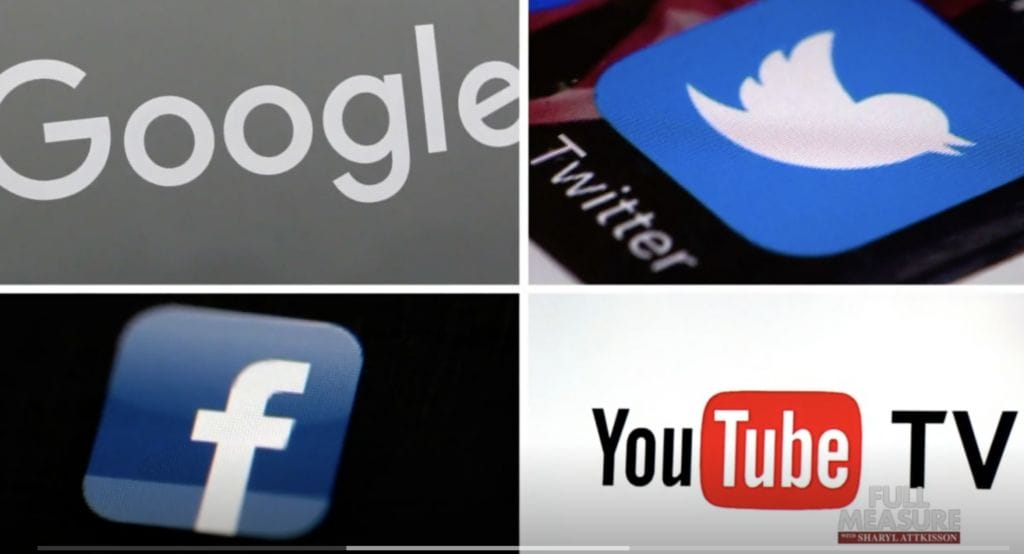Perhaps the single biggest influence on society today is the monolith of information comprised of the internet, social media, and online news and information. Nolan Higdon studies the big picture when it comes to that and true media literacy — not telling people who to believe, but expanding their minds to understand the nature of information and those who shape or manipulate it. He’s a professor of history and communication at University of California, Santa Cruz.
The following is a transcript of a report from “Full Measure with Sharyl Attkisson.” Watch the video by clicking the link at the end of the page.
Sharyl: When we look at the Twitter Files and social media in general, and the role that they played in concert with the media and public health officials during Covid, what do you think happened there?
Nolan Higdon: Yeah, so social media platforms are always manipulated. There’s never been this Wild West freedom of objectivity. At some level, they’re always managed. But what we notice from the Twitter Files is way more influence from outside actors: political parties — both the Democrats and Republicans — of course the government, members of industry like Big Pharma. And I think where part of this certainly comes from is, we know that the government always worked with these tech companies. That’s what Snowden revealed. We know politicians always rub shoulders with these tech companies. But I think after the moral panic over fake news, these companies were afraid that, for the first time, they might lose some of their protections. Particularly Section 230, right? The 26 words that invented the internet, which protects these platforms from getting sued over the content that’s on them. That’s why we have social media. And I think they’d had a knee-jerk reaction that, whoever was in power, they were going to listen to whatever those in power said, because that way they could keep their Section 230 protections. And so they worked with, you know, the Trump administration. Had a lot of meetings with Mark Zuckerberg and those folks while he was president. The moment they realized he was not going to be president anymore, they flipped and they were on team Biden. I think we’ll see more of this as social media continues to cozy itself up to those in power.
Sharyl: If we’re on some sort of continuum when it comes to access to information — unfettered access to information — I would say in the beginning the internet provided quite a bit of fairly unfettered access. Yes, you went through a search engine and so on, but there was nobody telling you in general that you couldn’t see stuff overtly. Where are we on that continuum today?
Higdon: We’re certainly way far away from where we started, in terms of the boundless access to information, or the “information superhighway” as they called it when I was a kid. It’s way more managed now. And the average user kind of has a delusion of power when they sit in front of their screen. They think they’re being empowered to access all the information in the world, and more than anybody in human history. It’s really a whole managed, curated experience. These companies will tell you what you can and can’t see. I know this firsthand. I teach news literacy, so one of the things I teach students to do is to find news articles from different funding sources and different ideologies. You can’t do that on Google anymore. If you Google news, any topic, they only give you legacy corporate media sources. So unless you know the other sources exist and go to them directly, Google will not send them to you. And that’s one example of how managed and curated our experience is online.
Sharyl: What advice do you give students? And what advice would you give Americans who really want to have a less-controlled experience to be able to make up their own minds about information?
Higdon: I think having some skepticism about too much power being in the hands of government and/or industry is very helpful. I would say stop giving into this impulse to say, “Let’s let government get rid of some information for us, or let Big Tech do it. They seem like nice people in Silicon Valley.” They’re not. This is really bad to empower these folks to determine which information we see. At a basic level, I think users would be wise to search out information from a multitude of sources, not just right versus left, but also corporate versus independent-funded. You know, elitist versus populist media. Try and get different views. Interrogate the sources that these people use. Interrogate the journalists. Make sure they have a history of being right. Interrogate the news source. Who is this outlet? Do they have a history of sending fake news? And these kind of basic questions can be really helpful in making sure you don’t become part of the fake news problem, where you’re spreading and believing fake news.
Sharyl (on-camera): One of Higdon’s recent books is “Media and Me: A Guide to Critical Media Literacy for Young People.”
Watch story here.

Visit The Sharyl Attkisson Store today
Unique gifts for independent thinkers
Proceeds benefit independent journalism




This article and Literacy and expanding the Mind ? In 3rd World countries and in Asian countries did you know you could put Old recycled Plastic to better use ? Example; Recycled plastic + Hemp fibers = New composite lumber and > 4×8 ×× 1/2 thick sheets of roofing deck used with New metal deck screws instead of nails ? This big cost saver in Asian countries prone to flooding and Hurricanes as well as poorer countries in New lower cost rain proof Building materials ?. New Habitat for Humanity ! ” The summit of knowledge is only bound by the energy used to create it ! _ Wm.Andrews Rochester, IN.
My earlier post Q & A, For poorer 3 World countries Building Engineers Example; If you made these New 4×8 foot sheets x 1\2 inch or 7\16 thick decking panels out of these materials, could builders still use Asphalt shingles on top of New decking sheets ? The answer is ” Yes, you would have to engineer new Roofing Nails with New Barb’s on the two side’s of new design roofing Nail’s, like on a Fish Hook, so Hand Hammer or pneumatic nail gun could drive new formed roofing nail’s into New design composite decking material. And also used for Building side wall’s, for better stronger Flooding protection and Smaller forced hurricane condition protection = ” Got Er Done New Building Materials with recycled plastic and Hemp fibers…. [ Made from recycled materials U.S.A. and World wide ??? ]